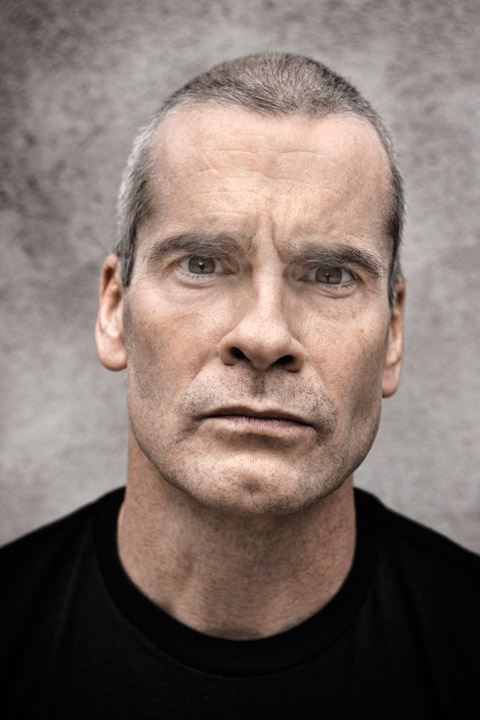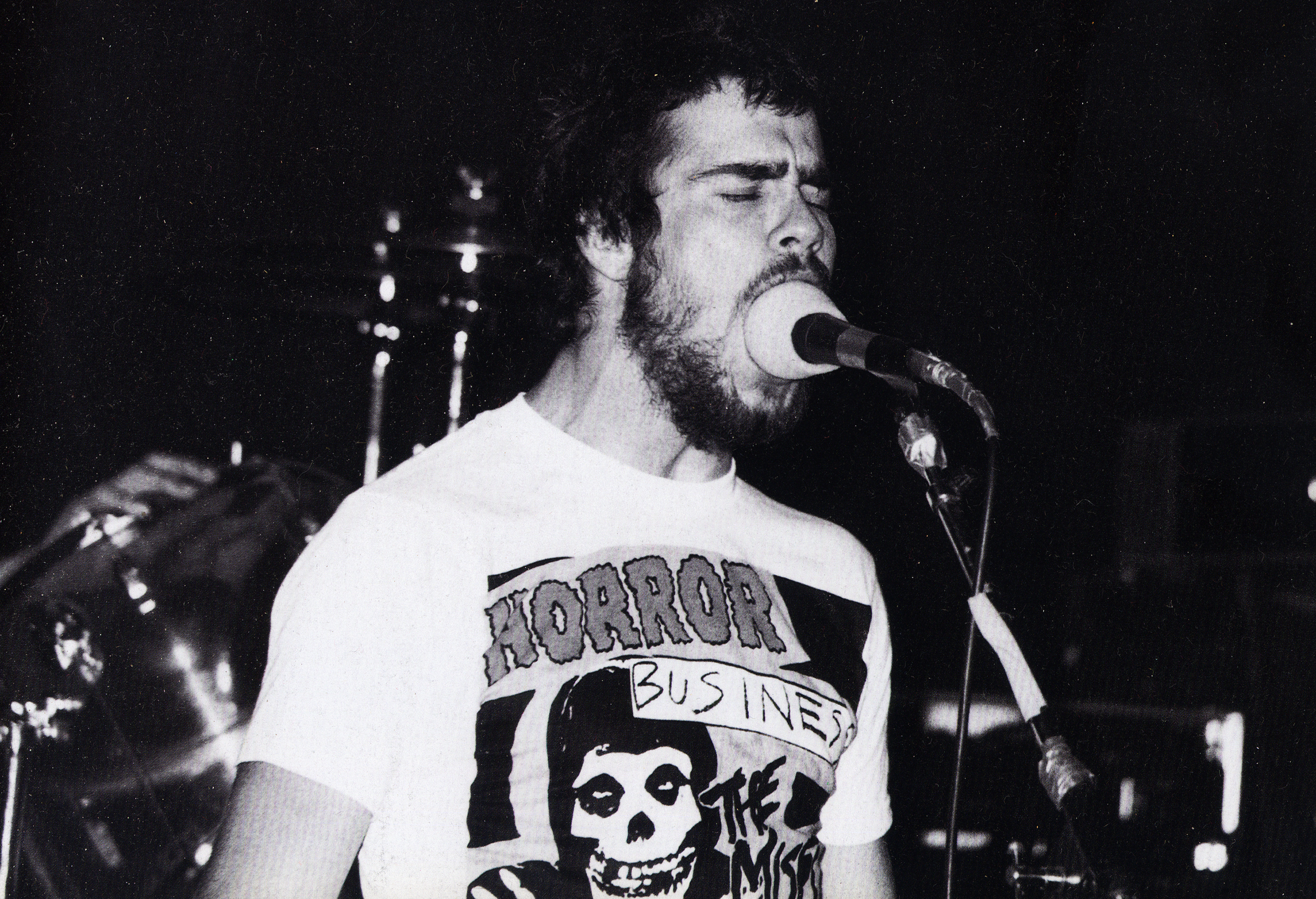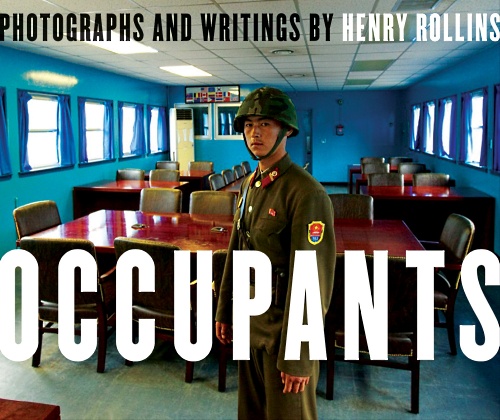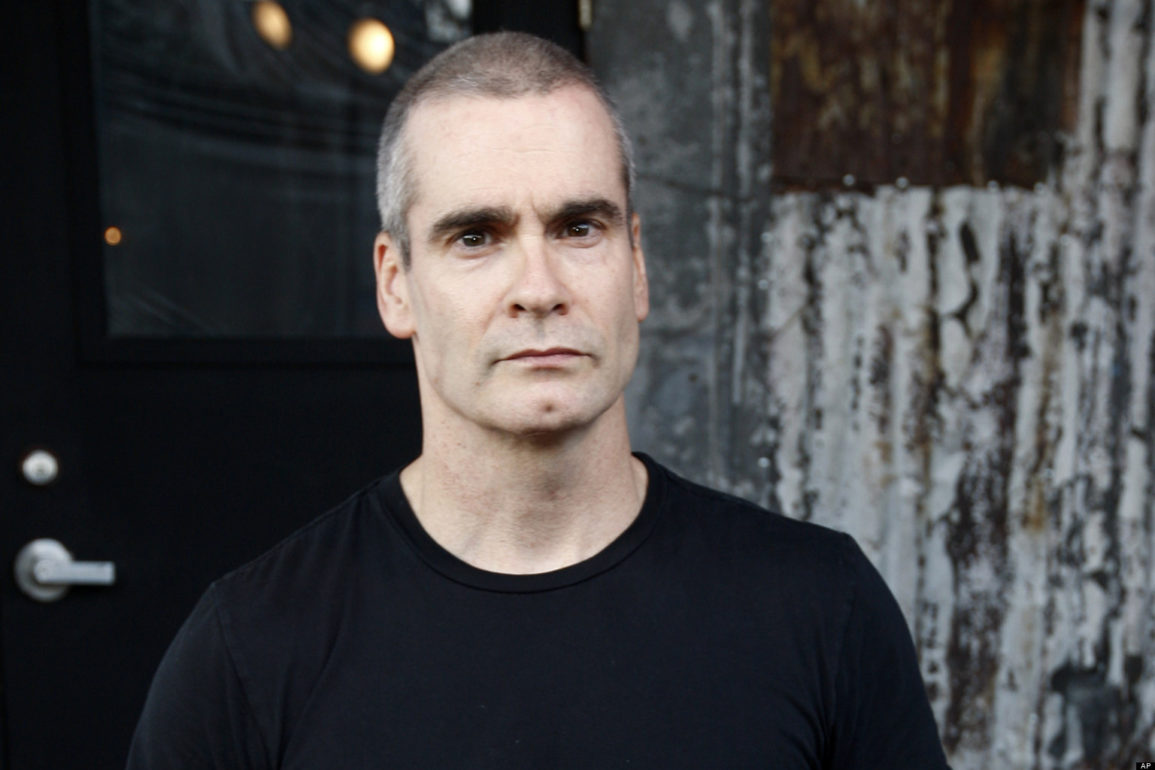
Keanan Duffty talks to Henry Rollins, the former frontman of the hardcore punk band Black Flag. Rollins is also a writer, journalist, publisher, comedian, activist, radio host on KCRW and actor on FX network’s Sons of Anarchy.
Keanan Duffty: You’re a very driven personality and your work so far has spanned music, film, spoken word, publishing, photography, video games, and a radio show…am I missing anything? What keeps you focused, energized and creative?
Henry Rollins: I am angry. That’s it, basically. My anger fuels my curiosity and I go forward. I am not as much creative as I am in motion. If you keep moving, keep putting different things on the schedule, you keep running at it. You’re forced to move towards something. This is a good way to work if you want to get things done and you’re not creative. You can employ dissatisfaction, desperation and fury to what you do and you will get there. As soon as you get there, catch your breath and get onto the next thing.

KD: You appear in FX’s Sons of Anarchy as A.J. Weston, a white-supremacist gang leader. Is it great fun for you to be ‘playing against type’?
HR: It’s not fun or much of anything else besides work for me, really. It was a job and I took it. I am extremely grateful for the opportunity but I don’t consider “type” or anything else. It’s a script and you do the work, that’s all it is for me, honestly. Doesn’t mean you don’t give it your all, but I don’t get hung up on who or what I think I am.
KD: Can you tell me when you started taking photographs and how “Occupants,” your recent book of photography, evolved?
HR: I have been taking photographs, every now and then, since I was young. When my destinations became more interesting—that is to say, when I traveled for reasons other than being onstage—I started getting more ambitious about composing a shot and getting my head around better gear. One thing lead to another and I had the audacity to put out a photo book.

KD: I recently spoke to photographer Richard Kern, who you worked with in the 1980s. I asked Richard about the perceived influence of his work on mainstream culture and offered up American Apparel as an example. Richard demurred, saying he thought American Apparel ads were more influenced by Terry Richardson and that the only famous person who has told him that they were influenced by Richard’s old films was Darren Aronofsky. How do you feel about your influence own on contemporary culture, and do you feel more established as time passes?
HR: I don’t think I have had much or any influence on any culture anywhere. I am one of many people out in the world doing things. I don’t feel the need to be established. It’s nothing I aspire to. It sounds like someone else’s value system. I do the work I think I should do and get by as best I can. As to the impact I have had, if I am to believe all the letters I get and the things that are said to me, I guess some people have found what I have done to be useful. That is what it’s all about for me. To have been of service. That’s all there is when you output something and sling it out into the world. If it does someone else some good, then, that’s a good thing. I think almost anyone who thinks they are influential are probably not. It’s like when someone tells me they are a philosopher or an artist or writer. If you were any of those things, you wouldn’t feel the need to let me know.
KD: You are an amazingly outspoken human rights activist and promoter of LGBT rights. Do you feel we’ve actually turned a corner in contemporary America where being gay is accepted by average Americans?
HR: We are definitely getting up the road to a rudimentary understanding of the First, Fourth and Fourteenth Amendments, yes. I think Americans, especially the younger ones, will not be conned into the stupidity and ignorance that came before them. I think that things are changing for the better. I come to this conclusion because I see how loud the intolerant are howling. They know their way is coming to an end and they are going down hard. I would expect nothing less, of course but they are definitely going down. They’re not taking it well.
KD: What piece of advice would you give to our students who want to pursue their own creative endeavors after they graduate?
HR: Whatever it is you want to do, want it more than anything else you have ever wanted in your life. It has to be number one in your priorities. I’m not saying that you can’t have a lot of fun along the way but at some point, you really have to get serious on what it is that you will be going after. This is how you get the best out of yourself. This is how you find your personal truth. Once you have that, the world will have to look out because you are coming.
Interview conducted by Keanan Duffty



